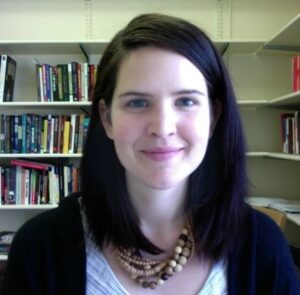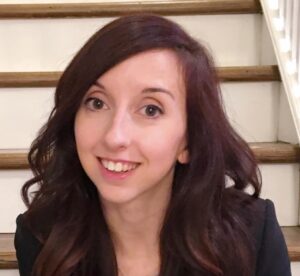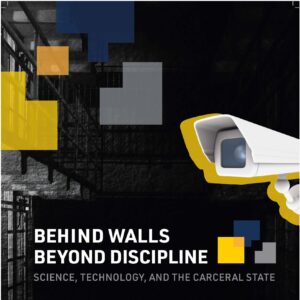HOW TO PARTICIPATE
This Zoom webinar is free and open to the public. Register here.
TITLE
Criminal Knowledge: Evidence, Expertise, and the Carceral State
SUMMARY
From physiognomy to predictive policing, technoscience has long been central to the power of the carceral state. At the same time, carceral sites such as prisons, courtrooms, and crime scenes facilitate and even demand technoscientific interventions. Forensic and legal ideals of truth, neutrality, and incontrovertible evidence coexist uncomfortably with the complicated politics of technoscientific expertise. This panel seeks to extend Science and Technology Studies (STS) insights into the production and politics of expertise through engagement with research on the carceral state. It addresses questions including: How do forensic ideals of evidentiary truth and legal ideals of guilt, innocence, and punishment shape scientific and technical expertise and vice versa? What kinds of expertise do carceral sites make possible, and how does carceral expertise compare across these different sites?
PANELISTS

Necrological Citizenship: DNA Identification, Social Death, and Migrant Rights in the Mexican Borderlands
Lindsay Smith, Arizona State University
Amidst the crisis of migration in the Mexican borderlands where an estimated 120,000 migrants have disappeared, DNA identification has been framed by both scientists and family advocates as a fundamental guarantor of the “right to know” about the identity and whereabouts of the missing. In this paper, I examine the discourses and scientific practices linking DNA technologies with social repair, paying particular attention to the politics surrounding the naming, identification, and invocation of the dead. How can we theorize the power of the dead, their suffering revealed through forensic knowledge, in the midst of the ongoing policies that created the conditions for their death and confinement? In this paper, drawing on over three years of ethnographic fieldwork in the Mexican borderlands working with survivors, family members, and forensic scientists, I develop the concept of necrological citizenship to better understand the ways in which the dead have emerged as a potent resource in rights claims.

The “MeToo” Kit on Trial: Contested Knowledge, Credibility, and Expertise with DIY Forensics
Andrea Quinlan, University of Waterloo
The ‘MeToo’ Kit, a self-administered forensic rape kit, has been marketed as a technoscientific solution to sexual violence. However, law enforcement agencies have been calling these kits ‘dangerous’ and challenging their legal credibility to identify sexual offenders and survivors’ lack of expertise to use them. This paper investigates the rise of self-administered forensic rape kits. It considers how the marketing and controversies around DIY rape kits are fueling carceral logics and broader techno-optimism in forensic technologies’ power to track violent offenders and prevent violent crime.

Knowledge and Freedom: An Antagonism
Cristina Mejia Visperas, University of Southern California
Scholarship on scientific racism have long documented the structural continuities between captivity and knowledge production in science and medicine, making clear how the latter become modes of institutionalized racial violence. From US slavery to the postwar prison, this violence in the form of medical study was neither exceptional nor scandalous but normalized and sometimes even celebrated practice. In the aftermath of WWII and the Nuremberg trials, the nation’s first bioethics taskforce sought to intervene in and regulate the widespread use of incarcerated people in medical science research. Centering principles of consent, beneficence, and fairness in these studies, the taskforce’s aims to prevent abuse against “vulnerable subjects” were in sharp contrast to contemporaneous abolitionist rhetoric, which foregrounded not the protection of such subjects from state or state-sanctioned violence, but the armed struggle against it. My paper reads the latter as the founding gestures of an insurgent bioethical framework attuned to the logic of captivity internal to postwar medical science (and vice versa, to the scientific rationality of captivity), and whose focus on direct action reveals the political limitations of (more) knowledge in the project of freedom.
This event is part of the webinar series “Behind Walls, Beyond Discipline: Science, Technology & the Carceral State.” This is the second event in the series. The previous event is Recasting the Technologies of Carceral Empire and the next event will be Privatization, Technology, and the Carceral State.
For more information, see the series Web site: https://sites.google.com/umich.edu/stscarceral/event-schedule

